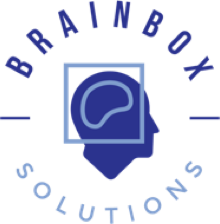WILL SUPPORT ADDITIONAL DEVELOPMENT AND COLLABORATIONS WITH JOHNS HOPKINS UNIVERSITY SCHOOL OF MEDICINE RESEARCHERS
Richmond, VA and Rehovot, Israel
ImmunArray, developer of the iCHIP™, a groundbreaking in-vitro auto-antibody detection technology, is pleased to announce the license and onset of development of potential tests to detect Acute Brain Injury in their development laboratory at Johns Hopkins Bayview Medical Center.
This represents the next step in the expansion of activity via their VERACIS™ subsidiary as the company furthers the development of clinical products licensed by Johns Hopkins University School of Medicine investigators Jennifer Van Eyk, Ph.D., and Allen Everett, M.D. The license provides access to novel biomarkers, which can pave the way to the development of a suite of tests for acute brain injury. The VERACIS Laboratory, a wholly owned subsidiary of ImmunArray USA, will provide testing services under CLIA and will also provide support to pharmaceutical projects and product development. The proteomics expertise and licensing capability resident in this relationship will allow for the development of further complimentary diagnostic products, with proprietary new antigens.
According to D. Scott Batty, M.D., CEO of ImmunArray, “The Lab and the addition of this Intellectual Property to our portfolio of products expand our market presence and the ability to develop novel, proprietary informative antigens for our ImmunArray diagnostic platform. It demonstrates our commitment to optimizing the development of both commercial opportunities for entry into diagnostic markets as well as continuing the path and widening capabilities of our pharmaceutical development programs.”
The markets for the diagnosis and treatment for Acute Brain Injury cross a broad area of clinical settings and patient populations as a continuum from Traumatic to Ischemic Injury and Stroke. There are 700,000 ER visits in the United States each year for Head Trauma and two million surgeries annually with risk of post-operative delirium/memory loss, especially in the elderly. This includes 415,000 CABG heart surgeries/year, and Ventricular Assist Device Implantations. In the diagnosis of Stroke, in 2009, there were 971,000 hospital discharges with cerebrovascular disease as the first-listed diagnosis. These represent only a segment of the opportunity for these novel markers.
The detail and versatility of the ImmunArray iCHIP™ platform allows for a breadth of unique and objective information to select pharmaceutical partners. This information will have a range of benefits. For example selecting best-in-class candidate compounds for clinical development and improving its efficiency by identifying “high responder” subsets of patients to tracking manufacturing processes for early warning of specification drift on products. In addition, this platform will allow for the development of companion diagnostics to identify patients most likely to benefit from therapy and support reimbursement.
Donna J. Edmonds, ImmunArray’s Chairperson and CEO of the Virginia BioSciences Commercialization Center, the VLSI’s operating subsidiary, states, “The access to these novel biomarkers builds on the company value and continues to expand the relationship of the VERACIS subsidiary and our expanding relationship with Johns Hopkins School of Medicine. We intend to expand the capability of this advanced and unique ability to detect and monitor response by using the immune system as well as detection of protein based markers in a multi marker strategy as a source of critical information about the state of the body. ImmunArray therefore provides an important technology to the rapidly changing health care environment, and is a key company in our portfolio. It potentially enables a wide range of applications to help reduce costs and improve care in both the diagnostic and pharmaceutical markets. VLSI and its investor base are pleased to continue supporting the expansion of ImmunArray and its capabilities through this important next phase of growth.”
